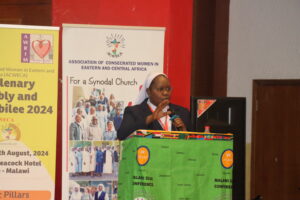SUDAN: Conflict Leaves ‘908,000’ People Affected
The 16-month conflict in Sudan’s border regions of South Kordofan and Blue Nile
has displaced and severely affected 908,000 people, according to a new data by
the UN Office for the Coordination of Humanitarian Affairs (OCHA).
has displaced and severely affected 908,000 people, according to a new data by
the UN Office for the Coordination of Humanitarian Affairs (OCHA).
In issue 40
of its Sudan weekly humanitarian bulletin, OCHA cited reports indicating that
175,000 refugees have fled to South Sudan and that another 38,000 to Ethiopia
as a result of the conflict. In both government and rebel held areas, the
report said that information from various sources indicates that a total of
908,000 people have been displaced or severely affected by the conflict.
of its Sudan weekly humanitarian bulletin, OCHA cited reports indicating that
175,000 refugees have fled to South Sudan and that another 38,000 to Ethiopia
as a result of the conflict. In both government and rebel held areas, the
report said that information from various sources indicates that a total of
908,000 people have been displaced or severely affected by the conflict.
The Sudanese
government has blocked access of humanitarian assistance to areas controlled by
the rebel Sudan People’s Liberation Movement North (SPLM-N) since the conflict
in South Kordofan started in June 2011 and later spread to Blue Nile in early
August.
government has blocked access of humanitarian assistance to areas controlled by
the rebel Sudan People’s Liberation Movement North (SPLM-N) since the conflict
in South Kordofan started in June 2011 and later spread to Blue Nile in early
August.
In August
this year, the government and the SPLM-N signed two memorandums of
understandings with the Tripartite Initiative consisting of the UN, AU and the
Arab League to facilitate the delivery of aid into rebel-controlled areas. But
the implementation of the deal in SPLM-N controlled areas is yet to happen.
OCHA report said that despite the various action plans that the Tripartite
Initiative proposed, neither the government nor the SPLM-N have formally agreed
to them.
this year, the government and the SPLM-N signed two memorandums of
understandings with the Tripartite Initiative consisting of the UN, AU and the
Arab League to facilitate the delivery of aid into rebel-controlled areas. But
the implementation of the deal in SPLM-N controlled areas is yet to happen.
OCHA report said that despite the various action plans that the Tripartite
Initiative proposed, neither the government nor the SPLM-N have formally agreed
to them.
“The
Tripartite has made clear that it is ready to facilitate the immediate
provision and distribution of humanitarian assistance once the Government and
the SPLM-N agree to the plan and provide the necessary security
guarantees” OCHA report reads.
Tripartite has made clear that it is ready to facilitate the immediate
provision and distribution of humanitarian assistance once the Government and
the SPLM-N agree to the plan and provide the necessary security
guarantees” OCHA report reads.
SPLM-N
spokesperson Arnu Loddi told Sudan Tribune on Friday that his group was not
responsible for delays in implementing the deal. Instead he blamed the
government saying it is procrastinating because it is preparing new military
strikes against them.
spokesperson Arnu Loddi told Sudan Tribune on Friday that his group was not
responsible for delays in implementing the deal. Instead he blamed the
government saying it is procrastinating because it is preparing new military
strikes against them.
Loddi also
revealed that the Tripartite Initiative had rejected their calls for holding a
meeting in New York to discuss the issue accusing the SPLM-N of seeking to
politicize the issue of humanitarian assistance.
revealed that the Tripartite Initiative had rejected their calls for holding a
meeting in New York to discuss the issue accusing the SPLM-N of seeking to
politicize the issue of humanitarian assistance.
SOURCE:
Sudan Tribune
Sudan Tribune


